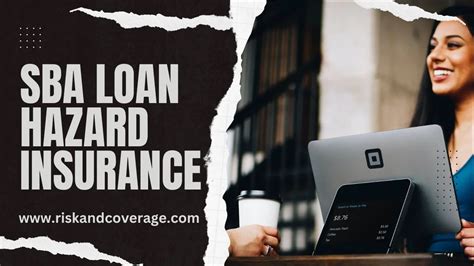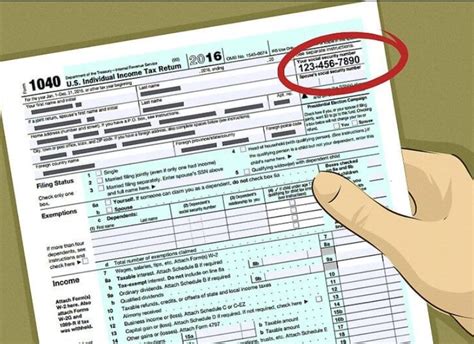1. Introduction
Securing a loan from the Small Business Administration (SBA) is a significant financial milestone for any entrepreneur. However, it is crucial to be aware of the insurance requirements that accompany SBA loans to ensure your business is fully protected against potential hazards. Hazard insurance is a vital component of SBA loan eligibility, safeguarding your assets and providing financial stability during unforeseen events. This comprehensive guide will delve into the intricacies of hazard insurance for SBA loans, empowering you to make informed decisions and navigate the insurance process seamlessly.

2. Understanding Hazard Insurance
Hazard insurance, also known as property insurance, is a type of insurance policy that provides coverage for physical damage or loss to your business property caused by unforeseen events such as:
- Natural disasters (e.g., earthquakes, hurricanes, floods)
- Fire
- Theft
- Vandalism
- Collapse
By obtaining hazard insurance, you can mitigate the financial impact of these events and protect your business’s assets, ensuring its continued operation and safeguarding your investment.
3. SBA Loan Hazard Insurance Requirements
The SBA requires that all borrowers with a loan amount exceeding $25,000 maintain hazard insurance on the property securing the loan. This insurance should cover the full replacement value of the property, including any improvements or additions made since the loan was approved. The coverage limit must be maintained throughout the loan term, and proof of insurance must be provided to the SBA annually.
4. How to Choose the Right Hazard Insurance Policy
Selecting the right hazard insurance policy is essential for ensuring adequate coverage and peace of mind for your business. Here are key considerations to guide your decision-making:
– Determine Your Coverage Needs: Assess the value of your business property and identify potential risks and hazards that your business may face. Consider factors such as the location of your property, historical weather data, and industry-specific risks.
– Compare Policies and Premiums: Research different insurance providers and compare their policies and premiums. Obtain quotes from multiple providers to ensure that you are getting the best value for your money and the most comprehensive coverage.
– Review Policy Exclusions: Carefully examine the policy exclusions to understand any limitations or conditions that may apply to your coverage. Ensure that the policy provides coverage for the specific hazards that you are most concerned about.
– Consult with an Insurance Agent: An experienced insurance agent can assist you in navigating the complexities of hazard insurance and provide tailored recommendations based on your business’s specific needs.
5. Benefits of Hazard Insurance for SBA Loans
Obtaining hazard insurance for your SBA loan offers a range of benefits that can protect your business and support its growth:
– Security and Stability: Hazard insurance provides peace of mind by safeguarding your business property against unforeseen events. In the event of a covered loss, your insurance policy will provide financial support to repair or replace damaged assets, enabling you to continue operating your business and protect your investment.
– Loan Eligibility: Hazard insurance is a requirement for SBA loans, ensuring that your business meets the agency’s eligibility criteria. By maintaining appropriate insurance coverage, you demonstrate your commitment to managing risk and protecting your assets, which is essential for loan approval.
– Lender Confidence: Lenders view hazard insurance as a responsible financial decision. It demonstrates that your business is proactive in mitigating risks and protecting its operation, which can increase the lender’s confidence in your loan application.
– Tax Deductions: Premiums paid for hazard insurance are typically tax deductible, reducing your business’s taxable income and potentially lowering your tax liability.
6. Tips and Tricks for Navigating Hazard Insurance for SBA Loans
Navigating hazard insurance for SBA loans can be a complex process, but there are proven strategies you can employ to make it smoother:
– Shop Around: Comparison shop to find the most competitive premiums and coverage options. Obtain quotes from multiple insurance providers to ensure you are getting the best value for your money.
– Document Your Property: Maintain a detailed inventory of your business property, including photographs and descriptions. This documentation will simplify the claims process in the event of a loss.
– Keep Up with Premium Payments: Make sure to pay your insurance premiums on time to avoid policy cancellation and potential coverage gaps.
– Review Your Policy Regularly: Periodically review your hazard insurance policy to ensure that your coverage limits and exclusions still align with your business’s needs.
7. Pros and Cons of Hazard Insurance for SBA Loans
Pros:
- Protects your business from financial losses due to covered events
- Ensures eligibility for SBA loans
- Supports lender confidence
- Provides tax deductions
Cons:
- Requires ongoing premium payments
- May not cover all potential hazards
- Can be subject to policy exclusions
8. FAQs About Hazard Insurance for SBA Loans
Q1. What is the minimum coverage amount for hazard insurance for SBA loans?
A1. The coverage amount must be equal to the full replacement value of the property securing the loan.
Q2. Can I purchase hazard insurance from any insurance provider?
A2. Yes, but the insurance provider must be licensed and in good standing in the state where your business is located.
Q3. How often do I need to provide proof of insurance to the SBA?
A3. You must provide proof of insurance annually to demonstrate that your coverage is current.
Q4. What happens if I cancel my hazard insurance policy?
A4. Canceling your hazard insurance policy may jeopardize your SBA loan and could result in default.
Q5. Can I make changes to my hazard insurance policy after it has been approved?
A5. Yes, but you should notify your insurance provider and the SBA of any changes.
Q6. What are some common exclusions in hazard insurance policies?
A6. Common exclusions include acts of war, nuclear accidents, and earthquakes (in certain regions).
9. Conclusion
Hazard insurance is a vital aspect of SBA loan eligibility and plays a crucial role in protecting your business from unforeseen events. By understanding the requirements, benefits, and nuances of hazard insurance, you can make informed decisions and ensure adequate coverage for your business. Remember to compare policies, consult with an insurance agent, and stay informed about industry trends to optimize your hazard insurance and safeguard your financial well-being. Embracing hazard insurance as a proactive measure will provide you with peace of mind, support your business growth, and set you on a path to long-term success.
Appendix: Comparative Table of Hazard Insurance Providers
| Insurance Provider | Coverage Options | Premiums | Customer Service |
|---|---|---|---|
| Nationwide | Comprehensive | Competitive | Excellent |
| State Farm | Tailored | Affordable | Good |
| Allstate | Standard | Moderate | Fair |
| USAA | Business-Specific | Premium | Exceptional |
| Travelers | High-Value Property | Custom | Average |
Appendix: Table of SBA Loan Hazard Insurance Requirements
| Loan Amount | Coverage Required |
|---|---|
| $25,000 or less | Not required |
| $25,001 to $50,000 | Required for major disasters only |
| $50,001 or more | Required for all hazards |
Appendix: Table of Common Hazard Insurance Exclusions
| Hazard | Exclusion |
|---|---|
| Acts of war | Typically excluded |
| Nuclear accidents | Typically excluded |
| Earthquakes (in certain regions) | May be excluded or require additional coverage |
Appendix: Table of Tax Deductions for Hazard Insurance Premiums
| Business Type | Tax Deduction |
|---|---|
| Sole proprietorship | Business expense deduction |
| Partnership | Business expense deduction |
| LLC | Business expense deduction |
| S corporation | Shareholder expense deduction |
| C corporation | Corporate expense deduction |



